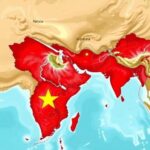Southeast Asia Unites Against the Impact of Chinese Imports on Local Economies
Southeast Asian nations, including Thailand, are confronting challenges posed by cheap Chinese imports that threaten local businesses. While Chinese investments are crucial for economies, concerns over low-quality goods persist. Thailand’s manufacturing sector is particularly affected, with many factories closing. Authorities are implementing measures to support local production, yet retailers still struggle. Other regional countries like India and Vietnam are also reacting to safeguard their markets against similar pressures.
Numerous nations across Southeast Asia, including Thailand, are grappling with the influx of inexpensive Chinese imports that threaten to undermine local businesses. While Chinese investments greatly contribute to these economies, the proliferation of low-quality merchandise presents significant challenges. Thailand, which enjoyed over $126 billion in bilateral trade with China last year, has seen detrimental effects in its manufacturing sector, as exemplified by the closure of 2,000 factories and thousands of job losses in 2023. Business owners, such as Banchob Pianphanitporn, owner of Ben’s Socks, report a significant decline in sales due to competition from cheaper Chinese products, emphasizing the struggles faced by local manufacturers in attracting budget-conscious consumers.
As Thailand’s economy experiences sluggish growth forecasts of only 2.3% to 2.8% in 2024, business owners have adopted innovative strategies, including social media marketing, to sustain their enterprises. In response to the challenges posed by foreign imports, Thai authorities have implemented measures such as introducing tighter inspections of insufficient quality goods and applying a value-added tax on lower-priced imports. Despite these actions, many local retailers have yet to perceive tangible benefits.
Countries like India and Indonesia are also pursuing protective measures against cheap imports, with proposals for substantial tariffs on specific goods. Vietnam, heavily reliant on China for trade, has taken steps to restrict Chinese online retail platforms that fail to meet local regulations, indicating a broader regional initiative to shield domestic industries. Experts posit that Southeast Asian nations, while attempting to safeguard their markets, may simultaneously seek to foster local production chains involving Chinese investments, thereby balancing competition with economic collaboration.
The article addresses the growing concern among Southeast Asian nations regarding the impact of inexpensive Chinese imports on local economies and businesses. Despite the benefits that Chinese investment and tourism bring to countries like Thailand, the influx of cheap, low-quality goods has raised serious challenges for regional manufacturers. As countries grapple with closures in their manufacturing sectors, they are exploring various strategies to preserve local businesses and adapt to an evolving market landscape.
In conclusion, Southeast Asian countries, particularly Thailand, face increasing pressure from low-priced Chinese imports that undermine local businesses. Though efforts are being made to implement stricter regulations and promote local production, the battle against unfair competition remains complex. Moving forward, regional strategies will likely include fostering domestic industries while continuing to attract foreign investment, reflecting the dual challenge of globalization and local economic sustainability.
Original Source: www.voanews.com








Post Comment